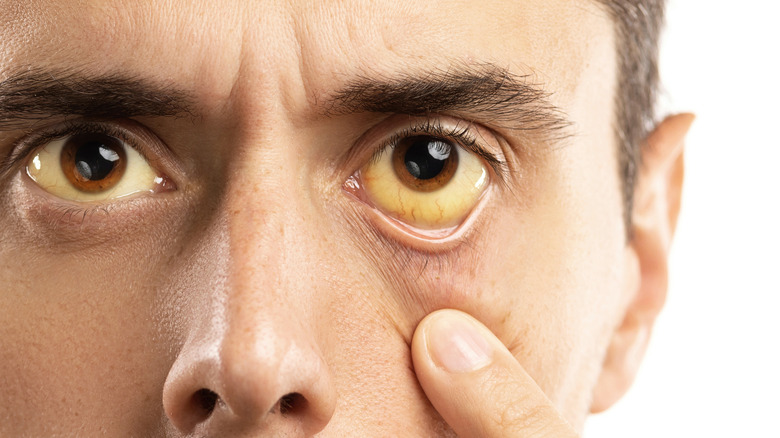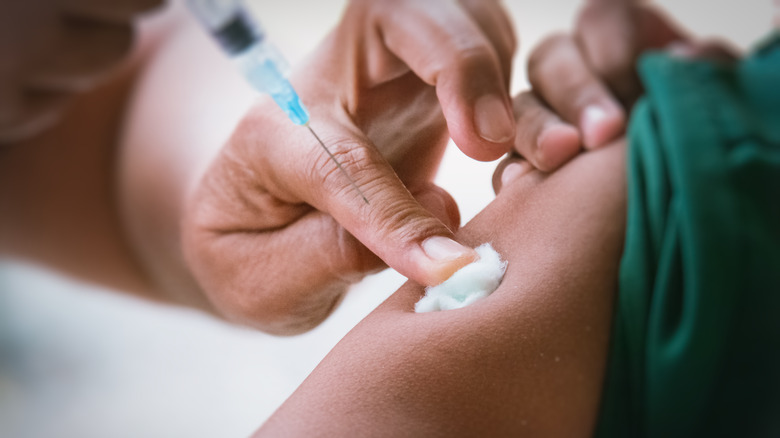What Is Yellow Fever?
Yellow fever is a viral infection characterized by high fever and a yellowing of the skin and eyes (via Healthline). It is a serious and potentially life-threatening disease transmitted through bites from infected mosquitoes in parts of Africa and South America.
Yellow fever can progress and develop rapidly. The disease has an incubation period and can take anywhere between three to six days after exposure for symptoms to appear, according to Healthline. Initial symptoms of the virus include fever, chills, headaches, and muscle aches. As it progresses into the acute phase, symptoms can include shivers, flushing, and loss of appetite.
Most people recover after this phase. However, others will enter the toxic phase and begin to experience more severe symptoms, like seizures, delirium, and bleeding from the eyes, nose, and mouth. While the toxic phase can be fatal, only 15% of people who contract yellow fever will ever enter this phase.
How to prevent yellow fever
While there is no cure or treatment for yellow fever, it is largely preventable through vaccination (via Verywell Health). Yellow fever vaccination is recommended for anyone traveling to Africa and South America, and you should plan to get vaccinated at least two weeks before you leave. It can take anywhere between 10 to 14 days after vaccination to build immunity. After that, the vaccine can remain effective for more than 10 years.
Although the yellow fever vaccine is safe and effective, it can cause some unpleasant side effects, like headaches, body aches, and low-grade fevers, according to Verywell Health. In rare cases, the vaccine can even trigger an allergic reaction. People with severe allergies to eggs, chicken proteins, latex, and gelatin should not get the vaccine. It's also not recommended for babies under 6 months old, pregnant people, those with HIV, and anyone taking immunosuppressants. For those who cannot get the vaccine, some alternatives include using insect repellent, wearing pants and long-sleeved shirts, and staying in lodgings with screened or air-conditioned rooms.


